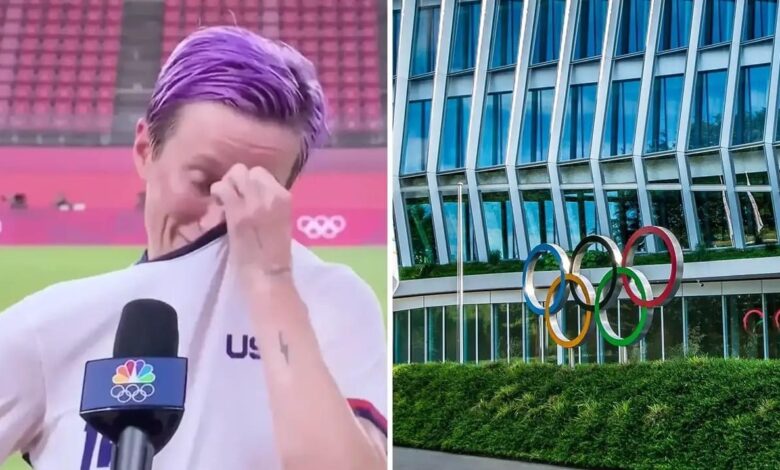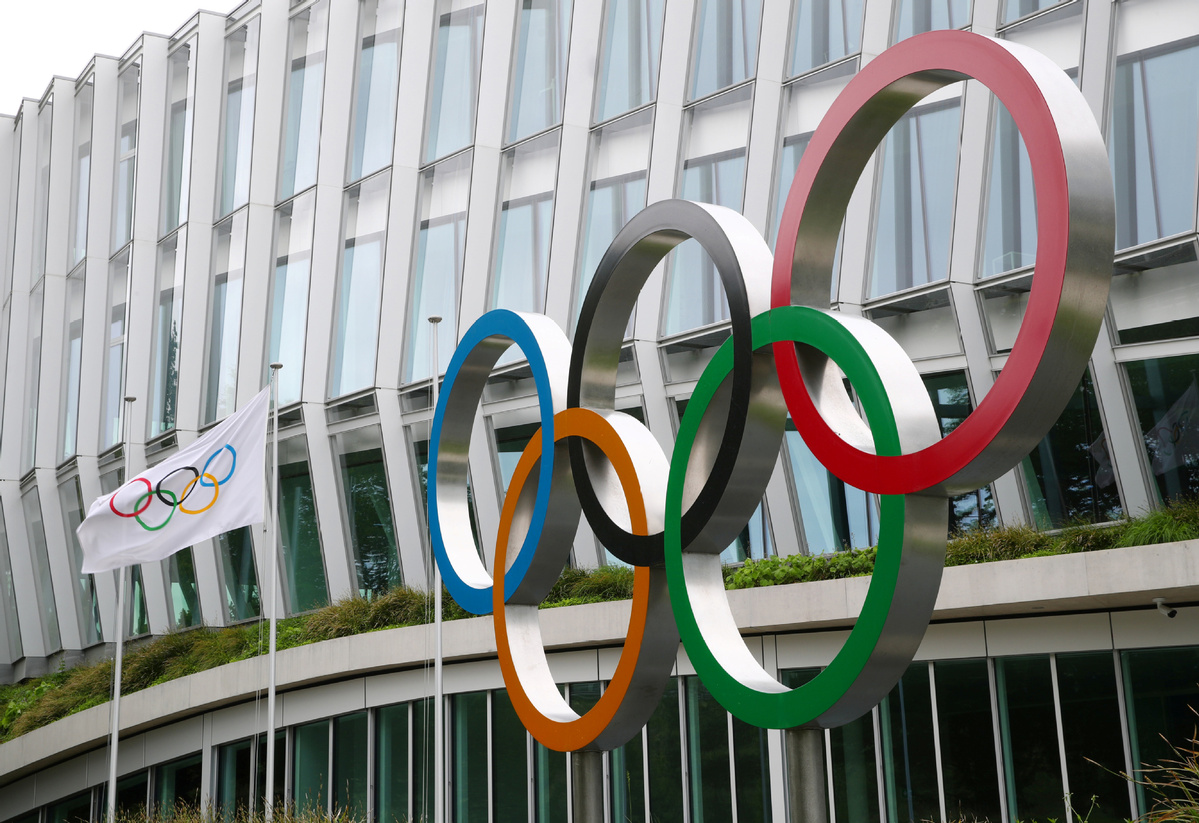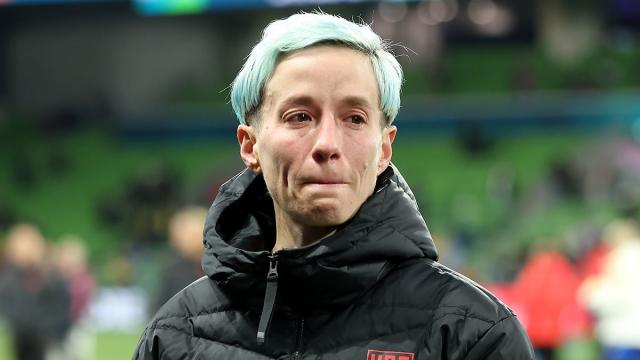“Olympic Committee’s Decision Regarding Megan Rapinoe Sparks Controversy”
In a surprising twist of events, the International Olympic Committee (IOC) has taken a bold step by prohibiting Megan Rapinoe, the outspoken soccer sensation, from participating in any future Olympic Games. This development has left many astonished, given Rapinoe’s prominence in the sports arena, celebrated for her activism and strong convictions. This move has sparked a critical debate concerning the delicate equilibrium between an athlete’s right to free expression and the responsibilities tied to representing their nation on the global stage.

Rapinoe, renowned for her extraordinary prowess on the field and unwavering dedication to social justice off it, has been a figure of contention in recent times. Her choice to kneel during the national anthem as a gesture against racial inequality, as well as her public critiques of former President Donald Trump, have garnered both admiration and rebuke.
Nonetheless, it appears that her actions have culminated in consequences. The IOC’s decision to bar her from Olympic participation references a breach of the organization’s principles, particularly those relating to sportsmanship and respect for the host country. The tipping point seems to have been Rapinoe’s recent actions during a World Cup qualifying match, where she declined to stand for the national anthem of the opposing team’s country.

IOC President Thomas Bach remarked, “While we recognize the significance of athletes leveraging their platforms to raise awareness about societal issues, it is imperative to strike a balance with the respect and sportsmanship intrinsic to the Olympic Games. Ms. Rapinoe’s actions have repeatedly crossed that boundary, and we cannot endorse conduct that disrespects not just the host nation but the Olympic spirit itself.”
This decision has ignited a fervent debate within the sporting community and beyond. Supporters contend that athletes should have the liberty to voice their opinions and utilize their platform for advocacy, even if it necessitates challenging the conventions of sportsmanship. Conversely, detractors argue that athletes should prioritize representing their country and displaying respect to other nations, particularly on the international stage.

Rapinoe’s response to the ban has been characteristically unapologetic. In a tweet, she affirmed, “I will persist in standing up for my beliefs, even in the face of consequences. The IOC’s decision only reinforces my determination to champion justice and equality.” While some of her admirers continue to rally behind her, others view the ban as an essential measure to safeguard the integrity of the Olympic Games. Many contend that the Olympics should be a forum for unity and cordial competition, devoid of political controversies that might overshadow the athletes’ accomplishments.
This ban also triggers broader inquiries regarding the roles of athletes in society and the limitations of their activism. As sports become increasingly intertwined with social and political issues, organizations like the IOC grapple with the challenge of harmonizing athletes’ rights with the anticipations of fair play and respect.
As discussions surrounding this ban persist, experts speculate that this controversy could prompt the formulation of more comprehensive guidelines for athlete conduct during international competitions. Such guidelines could help preempt similar situations in the future and offer clearer boundaries for athletes aspiring to utilize their platform for societal change.
Ultimately, the prohibition of Megan Rapinoe from the Olympics constitutes a pivotal moment in the continuous discourse on the roles of athletes in advancing social progress. While her commitment to justice and equality is commendable, the decision to bar her underscores the importance of upholding the values and traditions of the events in which athletes partake. As the world of sports grapples with these intricate matters, the equilibrium between activism and sportsmanship remains an imperative conversation that will undoubtedly shape the future of athletics.



